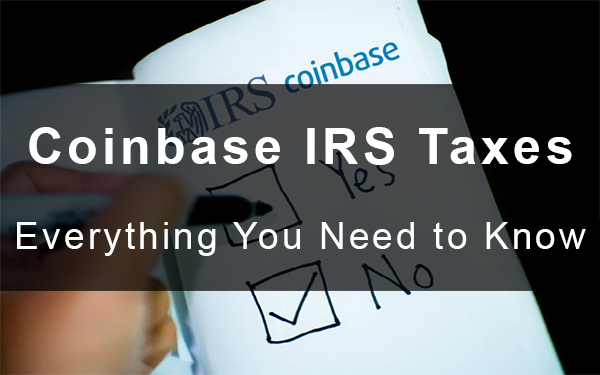Thanks for stopping by to read our article on Coinbase IRS Taxes.
In a ruling on Tuesday November 28th 2017, a federal court judge forced San Francisco-based Coinbase to adhere to a summons that needs to identify 14,355 accounts, which have actually represented nearly 9 million transactions.
“The summons as stated by the Court serves the IRS’s legitimate purpose of investigating Coinbase account holders who may not have paid federal taxes on their virtual currency profits,” wrote U.S. District Judge Jacqueline Corley.
So what exactly is the deal with Coinbase IRS Taxes?
In this article we are going to reveal everything about Coinbase IRS Taxes which you need to know.
So keep reading..
What is Coinbase IRS Taxes?

Coinbase and the IRS have been butting heads about Coinbase IRS Taxes since last year. On Wednesday, that battle came to a peak as a court ordered Coinbase to offer user info to the Internal Revenue Service (IRS) with Coinbase IRS Taxes.
Coinbase is being forced to open up their books on details about users who made transactions over $20,000 between 2013 and 2015 for Coinbase IRS Taxes. The demand consists of details from 14,355 Coinbase clients and 8.9 million transactions regarding Coinbase IRS Taxes.
This most current order comes nearly one year after the IRS first asked Coinbase to reveal client information about Coinbase IRS Taxes. It comes as the price of bitcoin reaches yet another all time high, breaching the $10,000 and $11,000 marks before the end of November prior to pulling away.
Coinbase is among the world's leading cryptocurrency exchanges. It's particularly popular among American crypto users, who have a variety of easy ways to purchase bitcoin and Ethereum through the platform– like through their normal bank accounts and credit cards.
Overall, this newest order is expected to reveal the transaction history of over 14,000 users and nearly 9 million sales. That information includes their names, birth dates, addresses, tax IDs, transaction logs, account billings, and more for Coinbase IRS Taxes.
That may seem like a lot of information– but it's not as much info as the IRS at first wanted about Coinbase IRS Taxes. When the organization initially summoned Coinbase in November 2016, they sought information about each and every single sale that had actually happened on Coinbase for Coinbase IRS Taxes.
Coinbase resisted that preliminary demand, arguing that it was a violation of the personal privacy of its users. The IRS submitted a petition to implement the summons. That petition was submitted in March 2017, as it progressed the court ordered Coinbase to reveal those records this past week.
Coinbase Calls the Ruling an “Unprecedented Victory”
It's simple to see this as a loss for Coinbase in regards to Coinbase IRS Taxes, because they're being required to turn over countless user records to the IRS.
Nevertheless, a blog post from Coinbase on Wednesday celebrated the ruling, calling it an “extraordinary triumph for the market about Coinbase IRS Taxes”
” The government's own lawyers noted at the hearing that the IRS is not accustomed to having to defend records in this context in regards to Coinbase IRS Taxes, and a lot of business simply turn records over without going to court,” David Farmer, director of service operations at Coinbase, explained in the article.
Farmer added that the variety of customer records being disclosed to the IRS is 97% lower than the number initially requested by the IRS.
Coinbase IRS Taxes – Coinbase Will Notify All Affected Customers
Have you performed any transactions over $20,000 on Coinbase? You're most likely attempting to do math to figure it out.
Thankfully for Coinbase users, the business plans to alert all users if their records are divulged to the IRS:
” In the occasion that we ultimately produce the files under this court order,” explained Coinbase in their article, “We intend to alert impacted users in advance of any disclosure.”
Despite Coinbase declaring success, they took another loss from the court judgment. Wednesday's court order rejected Coinbase's request for an “evidentiary hearing”. Coinbase was anticipated to utilize an evidentiary hearing to argue that the IRS showed bad faith when asking for documents from the company.
Cryptocurrency research and advocacy group Coin Center issued a declaration on the judgment, mentioning that they were “deeply disappointed with the lack of validation supplied by the IRS.” They stated that the case “sets a bad precedent for monetary personal privacy.”
Follow Us on Social Media Below (We are a Real People :)):
Subscribe To Our YouTube Channel Here
Thanks,




Leave a Reply